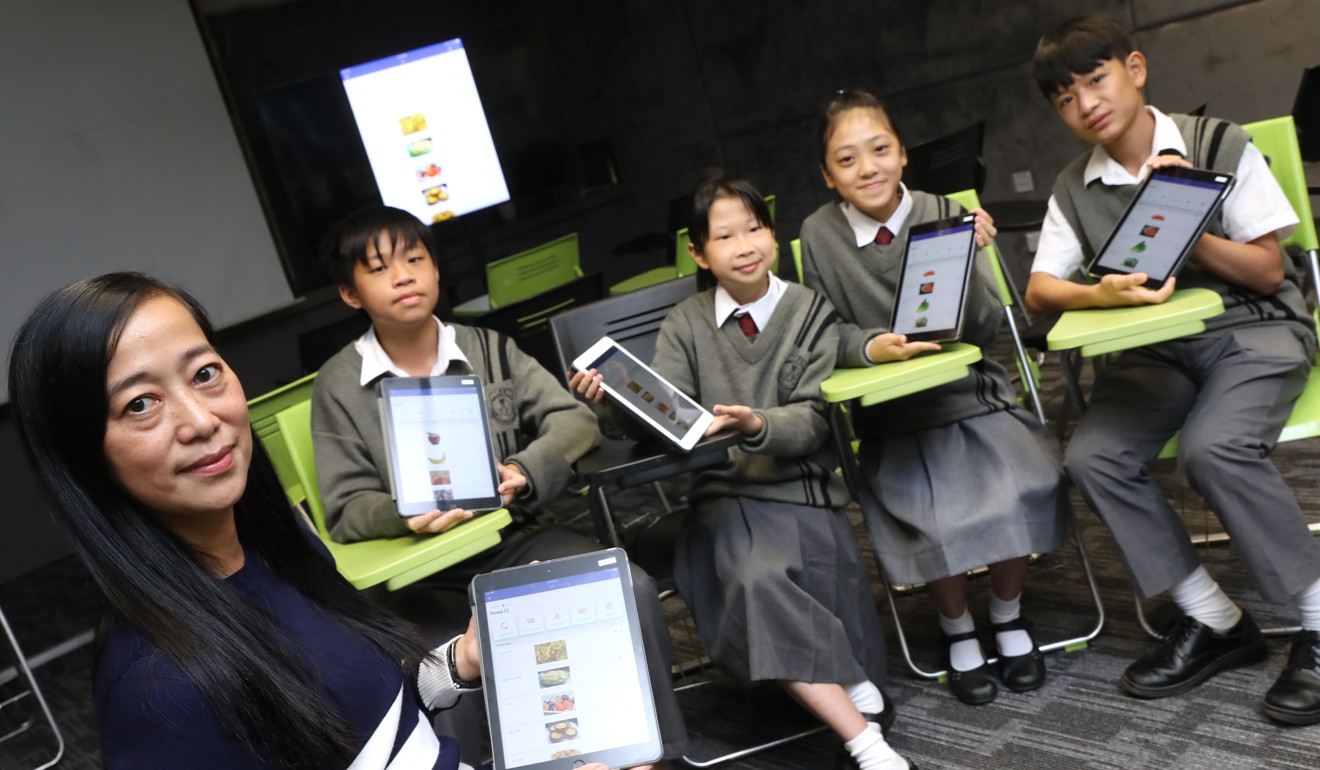
The Hong Kong school that lets children decide what questions should go in their exams
- YOT Chan Wong Suk Fong Memorial Secondary School in Tuen Mun ditches traditional education system
- New method geared towards creating syllabus based on ability of individual students
A secondary school in Tuen Mun is taking a radical new approach to education, by letting students decide which questions will be asked in their exams.
YOT Chan Wong Suk Fong Memorial Secondary School said it was testing a learning model that allows students to choose what homework they did, and how their exams are set.
To do that, teachers assessed students’ abilities in several subjects at the beginning of school year, and, based on the results, then geared homework and exam questions towards the competency of the individual student.

So far, teachers have applied the methodology to English, Chinese, maths and biology.
“Once we know our children’s levels, we’re able to cater a syllabus that fits them rather than following a system that goes from the top down,” Edith Wong Wing-fun, an English teacher, said.
This method is especially helpful for those with special education needs, she added.
Hugo Wong Ho-yin, a 14-year-old secondary two student, said he got more satisfaction under the new system.
“When I was in primary school, sometimes when I got a question on the test that I didn’t understand, I had no choice but to guess the answer, or leave it blank, then I would fail the test,” he said.
“But now I can pick and choose the ones I do get, and answer them correctly, and that makes me happy, knowing that I get the topic and that I won’t fail.
1 in 7 Hong Kong pupils from poor families ‘overloaded with stress’
“There’s a huge difference in the way we learn, there’s no need to do copying exercises any more because we’re taught to understand the true meaning behind a theory or a vocabulary.”
His English teacher said students strive to do better after tasting a success.
“Students’ grades might not have gone up a significant amount, but we see huge improvement in their attitude, their behaviour in the classroom, and how they’re more eager to learn,” Edith Wong said.
“Even though they are given a few questions to choose from, and may it be that they’ll go for the easier ones at first, eventually they will want to learn and be able to answer the harder ones.”
Teachers said the initiative had been a huge success, given that it was only been four months since it was implemented.
“The children with special educational needs are suffering most from the traditional education system because of their congenital incapability to achieve high scores, but who’s to say they are weaker than the others?” Edith Wong said.
Homework-free holidays improve learning abilities, study finds
“Each of our students has their own strength and weaknesses, but to constrain their success to a set of standardised examination papers is unfair.”
The traditional way of teaching has problems, according to Hung Yuen-ling, the senior development manager of the Hong Kong Education City Limited, a government-owned company that pushes for changes in the city’s curriculum through technology.
“What we need to do now is to encourage schools and principals to be as committed to making a change, steering away from the traditional beliefs that grades are everything,” she said.
Yet, she said it could be difficult to implement this method at all schools in one go: “We have to slowly ease the schools into adapting this style of teaching.
“Once we can spread the idea of this alternative way of learning, we can then move forward and improve the education system for our younger generation,” Hung said.

